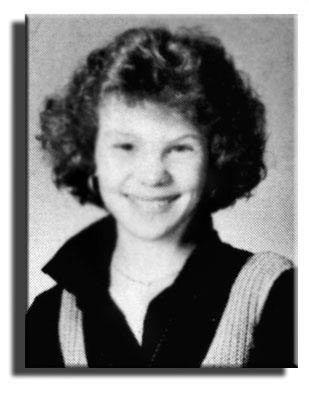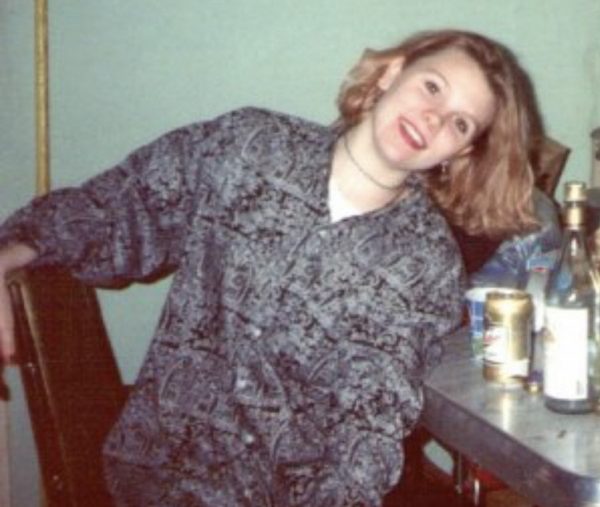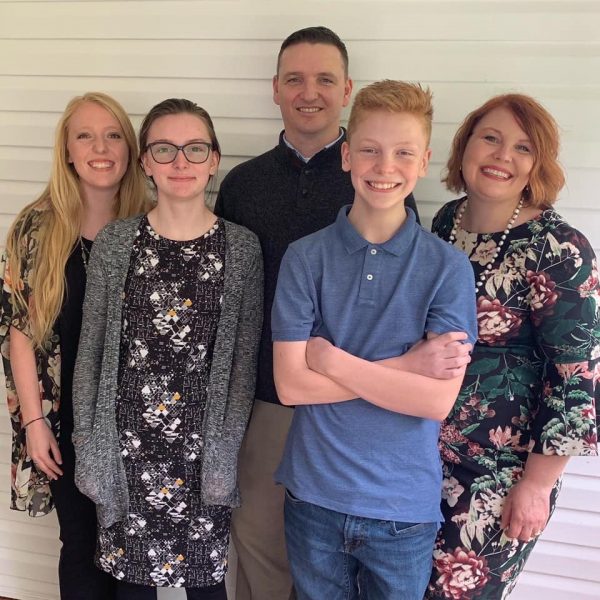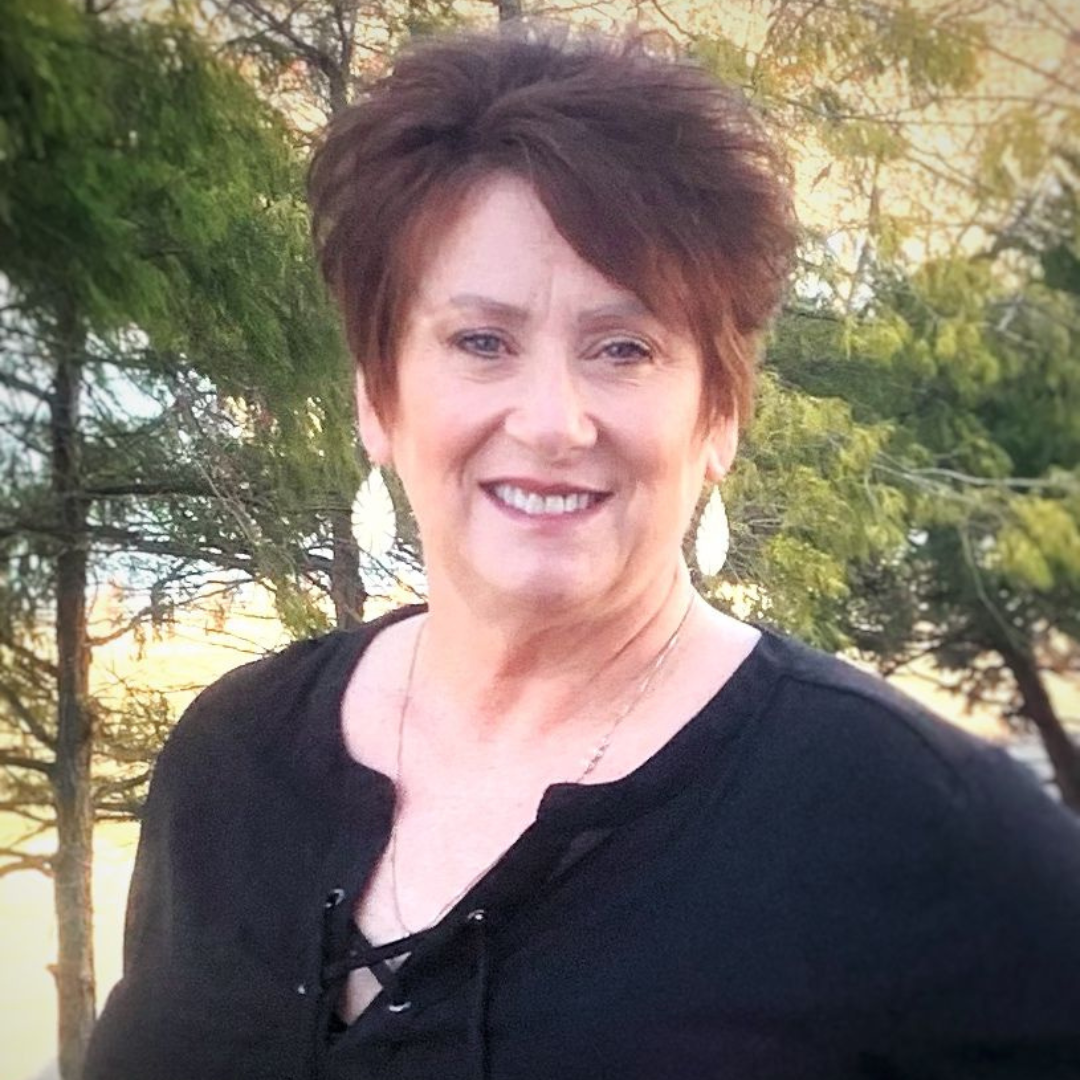Writer’s note: A few months back, I participated in Reality at a Glance (RAAG), a program sponsored by the YWCA. A walking tour designed to educate the public about what crime looks like in real-time, RAAG opened my eyes to an issue that I hadn’t previously given much thought to — human trafficking in the Ohio Valley. I knew it existed, but I had no idea how prevalent it is or how much more there was to it than just coerced sex. What have I learned? For starters, trafficking is much more like the Reba McEntire song “Fancy” (… Mama what do I do/She said just be nice to the gentlemen Fancy/And they’ll be nice to you/She said here’s your chance/Fancy don’t let me down) and a lot less like the movie “Taken” (a retired CIA operative crosses the globe to rescue his kidnapped teenage daughter) than people might think. Part 1 – Hidden in Plain Sight, examined the dynamics of human trafficking. In Part 2, we meet Angie Conn, a survivor.

Trafficking survivor Angie Conn knows just how easily that can happen. For her, that downward spiral into hell began with a sexual assault.
‘SITTING IN A CLOUD OF SHAME’
When Conn was a high school freshman, she was sexually assaulted by a senior basketball star. The trauma caused Conn to spend the next few years “sitting in a cloud of shame” that she was unable to rise above. She began drinking and abusing prescription Percocet that she had been given for legitimate health issues.
Her shame and misery left her unable to face her friends and fellow students, and she started skipping school. Though her parents tried the best they knew how to deal with her behavior, it caused friction within the family, and Conn began to believe that she would be better off away from her parents.
She began dating an older man who fed this belief, telling her that her parents were the problem and that she deserved better — messages that the troubled Conn longed to hear. However, his intentions were far from benevolent. His affirmations were just what Conn needed, and he used that knowledge to coerce her to do his bidding.
At one point, he took her to a party, telling her that she deserved to “relax” and “have some fun.” Conn turned out to be the only female at this party, and her new “boyfriend” allowed her to be gang-raped by the party-goers in exchange for drugs. Conn believed that she was somehow to blame for this assault. She actually tried to press charges against one of her rapists, but was told by a police officer, “No wonder this happened! Look what you were wearing! What did you expect?! If you would have just stayed home where you belonged instead of running away.”
This police officer’s reaction caused her to sink even deeper into the darkness of her shame, and she decided to escape her pain and misery by running away with a friend to California to start a new life.

But teenagers alone in an unfamiliar new town are victims waiting to happen. A trucker who gave Conn and her friend a ride said he knew of someone who had an empty room they could stay in while they looked for work. The owner of that room turned out to be one of the state’s biggest meth dealers, who groomed them by gaining their trust before beginning to traffick them. For the next two years, Conn was pimp- and gang-controlled, trafficked and traded for drugs and cash. Eventually, she wound up in a violent and abusive relationship.
And then she found out she was pregnant.
A NEW LIFE
A few months later, Conn went into pre-term labor and had to be hospitalized. This hospital stay turned out to be the opportunity she needed to escape her situation. She was able to do so and began a new life with her baby daughter.
Conn earned a degree in phlebotomy and eventually returned home to West Virginia. She attempted to internally “box up her past” because she had been told and believed that the trauma and violence she had endured were solely her own fault, caused by her own choices.
But the pain of her past kept bubbling to the surface. She started drinking to mask her pain and then took a job in a strip club, where she once again became gripped by a pimp-like club owner who controlled her life. Conn’s feelings of being “less than enough” were more than she could bear and kept her from seeing herself as worthy of a better life.
About this time, her mother’s church group in southern West Virginia took an interest in her and tried to help, support and encourage her.
Although Conn initially felt like she was their “pet project,” she soon began to appreciate that their intentions were genuine. “I came to realize that they really did care about me,” Conn remembered.
So she once again pushed her past deep inside and moved forward with her life. She soon met and married her husband. “He has been my rock,” she shared. He adopted her daughter, and the couple went on to have two children of their own. As the years passed, she finally began to realize that her worth was not in her body but in her mind and soul.
“With my husband and family’s help, I finally realized that I am ‘enough’ just as I am,” Conn said.

Conn happened to hear a podcast about human trafficking and was shocked to learn the name for her experiences. It was as if a lightbulb flashed on — she finally began to realize that what had happened to her was not at all her fault. After this awakening, Conn connected with other trafficking survivors and finally felt that she was in the company of people who truly understood her past.
The acceptance and validation she felt in their presence was life-altering for Conn. “It positively changed my life for the better,” she recalled.
Fast forward to 2020. Conn is now a mentor to hundreds of other survivors across the country. She inspires them to not only survive their pasts, but to thrive moving forward into their futures. Conn tells survivors, “You are more than the trauma that happened to you. You deserve joy!”
“You are more than the trauma that happened to you. You deserve joy!” — Angie Conn
She is also a motivational speaker and runs a consulting agency called She Who Dares whose goal is to grow a community of survivors across the state of West Virginia.
“No one ever asked me the simple questions, ‘Are you OK?’ or ‘Do you need to talk?’ back when my behavior first started to change,” Conn shared. “Someone asking those questions in the beginning after my dramatic swing in behavior could have changed my life. I never felt as if I had a safe space to talk about things that were happening. I felt I had to hide.” She had no idea where to turn; all she knew was that she wanted desperately to open up and seek help. But not one adult in her life bothered to ask if she needed it.

SEE SOMETHING, SAY SOMETHING
How can the general public help to curb this modern-day slavery going on just beneath the surface all around us?
“If you see something, say something” is the key, according to Conn. Someone noticing changes in her behavior and questioning her about them could have saved her from years of violence and abuse.
Andrew R. Cogar of the U.S. Attorney’s Office, Northern District of West Virginia, confirmed that being observant and asking the right questions are key.
He and Conn both suggest watching for changes in behavior — secrecy, mood swings, isolation, new friendships. Ask if the person is OK or if they need help. They may decline the offer, but, as was the case with Conn, the person may just be ready to open up if the time is right.
If you believe that a possible victim is in imminent danger, call 911 immediately, Cogar emphasized. If you are suspicious of a situation that you have become aware of, he suggests calling the Department of Homeland Security at 866-347-2423 or the FBI at 412-432-4000. He said you should make the call even if your suspicion seems vague or unfounded.
“Your small bit of information may not seem like much, but it could be the missing piece of the puzzle that these agencies are piecing together,” he stated.
ADDITIONAL RESOURCES
• Teachers and health care workers have unique opportunities to notice physical and behavioral changes. If you are an educator and would like to learn more about signs to watch for, you can do so here. Likewise, if you are a medical professional, you can find additional information here.
• You can also visit the National Human Trafficking Hotline website or contact the hotline by calling 888-373-7888 or by texting HELP to 233733.
• Because truck drivers and other transportation professionals often encounter runaways and situations where vulnerable populations are at risk, they have started a nationwide non-profit organization called Truckers Against Trafficking whose mission is to discover and disrupt trafficking networks.
• A new organization called Refuge for Women recently opened in Steubenville, Ohio. Refuge for Women has locations across the country and offers up to 12 months of safe, free housing with round the clock care for trafficking survivors. Residents receive counseling and trauma-informed programming to help them reclaim their identities, heal from trauma and develop life skills.
Groups such as these educating the public and taking a stand against trafficking are huge steps in the right direction. “It’s hard for me to swallow that we haven’t yet been able to solve this problem,” Cogar lamented. “However, we are definitely seeing improvements. We saw record-high reporting on the hotline last year, and I’m optimistic about that.”
• A lifelong Wheeling resident, Ellen Brafford McCroskey is a proud graduate of Wheeling Park High School and the former Wheeling Jesuit College. By day, she works for an international law firm; by night, (and often on her lunch breaks and weekends) she enjoys moonlighting as a part-time writer. Please note that the views expressed in her writing are solely her own and do not necessarily reflect those of anyone else, including her full-time employer. Through her writing, Ellen aims to enlighten others on causes close to her heart, particularly addiction, recovery and equal rights. She and her husband Doug reside in Warwood with their clowder of rescued cats, each of whom is a direct consequence of his job as the Ohio County Dog Warden. Their family includes four adult children, their spouses and several grandkids.



